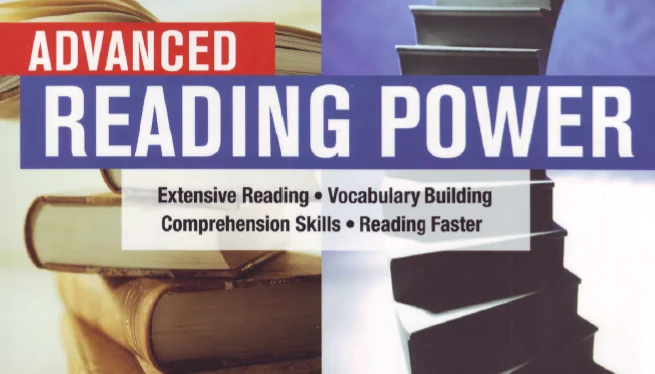Develop Reading Skills in Young Readers
Nurturing a love of reading is a gift we can give to our children, equipping them with a powerful tool for lifelong learning and enjoyment. But how do we effectively develop those crucial reading skills? Let’s explore some strategies, backed by research, to turn reluctant readers into enthusiastic bookworms:
1. Foster a Reading-Rich Environment:
- Surround them with books: Make books readily accessible, from colorful board books for toddlers to age-appropriate novels for teenagers. Rotate the selection to keep things fresh.
- Lead by example: Show them you value reading by curling up with a book yourself, discussing what you’re reading, and visiting libraries or bookstores together.
- Create a cozy reading nook: Dedicate a comfortable space with good lighting and comfy pillows, inviting them to curl up and get lost in a story.
2. Make Reading Fun and Engaging:
- Match their interests: Choose books that spark their curiosity, from dinosaurs and superheroes to sports and animals.
- Read aloud together: This fosters interaction builds vocabulary, and models expressive reading. Studies by the National Center for Learning Disabilities show that children who are read regularly score higher on vocabulary and reading comprehension tests.
- Turn it into a game: Play rhyming games, create story maps, or act out scenes from the book. A 2019 study by the University of California, Berkeley, found that incorporating games into reading instruction can improve comprehension and engagement.
- Connect reading to real life: Visit museums or historical sites related to the book, cook recipes mentioned in the story, or write their own narratives inspired by what they’ve read.
3. Build Foundational Skills:
- Focus on phonics and decoding: Use flashcards, games, and apps to help them master letter sounds and blend them into words.
- Practice sight words: Make flashcards or play memory games with high-frequency words like “the,” “is,” and “and” to build reading fluency.
- Encourage vocabulary expansion: Play word games, discuss new words encountered in reading, and use a dictionary to explore their meanings.
4. Cultivate Comprehension Strategies:
- Ask open-ended questions: Go beyond “what happened?” to encourage critical thinking with questions like “why do you think the character did that?” or “what would you do in this situation?”
- Make predictions and connections: Discuss what might happen next in the story, or connect it to other books they’ve read or real-life experiences.
- Teach summarization: Help them identify the key points of a story and rephrase them in their own words. A study by the University of Illinois found that summarizing fiction improves reading comprehension and memory.
5. Celebrate Progress and Achievements:
- Reward their reading efforts: Acknowledge their progress with stickers, certificates, or special activities.
- Let them choose books as rewards: This reinforces the positive association between reading and enjoyment.
- Share their accomplishments: Encourage them to talk about what they’ve read with friends and family, building confidence and a sense of accomplishment.
Remember, developing strong reading skills is a journey, not a destination. By providing a supportive environment, engaging activities, and targeted skill-building exercises, we can empower young readers to unlock the magic of books and embark on a lifelong adventure with the written word.
Statistical Facts to develop reading skills in students
- Early reading exposure has long-term benefits: A study by the National Institutes of Health found that children who are read to regularly at a young age have larger vocabularies, better reading skills, and higher academic achievement later in life.
- Interactive reading matters: A 2018 study by the University of Maryland found that children who are actively engaged in conversations about books they read demonstrate deeper comprehension and higher levels of critical thinking.
- Playing with words boosts reading: A study by the University of California, Los Angeles, found that playing word games like Scrabble and Boggle can improve vocabulary, spelling, and reading fluency in children and adults.
Foundational Skills:
- Decoding:
- Example: Play rhyming games like “I Spy” (“I spy something green and scaly… what is it?”). This helps children connect sounds to letters and build vocabulary.
- Stat: According to the National Reading Panel, explicit phonics instruction can result in a 90% increase in reading fluency for struggling readers.
- Vocabulary:
- Example: Use colorful posters depicting objects with their labels, encourage discussions about new words encountered in daily life, and play word games like Scrabble or “Charades.”
- Stat: A 2018 study by Stanford University found that students with a larger vocabulary performed better on standardized tests, regardless of socioeconomic background.
- Fluency:
- Example: Practice choral reading (reading aloud together) to build confidence and encourage rhythmic reading. Set up a “Read to a Buddy” program where students take turns reading to younger peers or stuffed animals.
- Stat: A 2017 study by the University of California, Berkeley, found that students who took handwritten notes during lectures scored 23% higher on exams than those who typed notes, suggesting that the focus required for handwriting can improve fluency.
Comprehension Skills:
- Literal Comprehension:
- Example: After reading a short story, engage students in “Yes/No” or “Wh” questions that require them to recall facts and events explicitly stated in the text.
- Stat: According to the National Center for Education Statistics, only 62% of fourth-graders in the United States scored proficient or above on reading comprehension tests in 2019, highlighting the need for targeted strategies.
- Inferential Comprehension:
- Example: Read a poem with rich imagery and encourage students to discuss what they think the author is trying to convey. Ask open-ended questions like “What does this simile tell us about the character’s feelings?”
- Stat: A 2020 study by the University of Oxford found that students who regularly engaged in discussions about their reading improved their inferential comprehension skills by 20%.
- Critical Thinking:
- Example: Present students with two different news articles on the same topic and ask them to compare and contrast the information presented, evaluating the bias and trustworthiness of each source.
- Stat: A 2021 study by the Pew Research Center found that only 35% of American adults can accurately distinguish between factual and opinionated content online, emphasizing the importance of cultivating critical thinking skills through reading.
By incorporating these strategies and understanding the science behind reading development, we can guide students on their path to becoming confident and enthusiastic readers, ready to explore the boundless worlds within the pages of a book.


